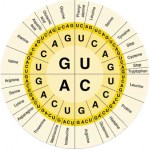Internet
For anyone trying to make a living at blogging, including our Seed Media Overlords, one of the major hurdles is the poor pay of internet advertising compared to magazine and newspaper advertising. This is an accurate assessment of the problem (italics mine):
I think the evidence for this dynamic is weaker than a lot of people suspect. As far as I can tell, it's all based on Google. GOOG showed up and provided contextualized ads to consumers and a model that allowed advertisers to only pay for purchases that were "working". This is pretty much the only way they make money, and they make a lot…
"Information Wants To Be Free. Information also wants to be expensive. Information wants to be free because it has become so cheap to distribute, copy, and recombine---too cheap to meter. It wants to be expensive because it can be immeasurably valuable to the recipient. That tension will not go away. It leads to endless wrenching debate about price, copyright, 'intellectual property', the moral rightness of casual distribution, because each round of new devices makes the tension worse, not better."
-Stewart Brand
Many pundits have been discussing what Wikileaks means for either…
We are still frustrated in our efforts to get our new website up and running, so here's something dated to contemplate. Going through the old articles that are in the process of being transferred over, here's one that popped up from the second issue of Interface magazine (1992): Library without Walls. The article extols the new intranet services available to Weizmann Institute users:
Over the past year, notes Chief Librarian Ms. Ilana Pollack, several databases acquired by the Institute Library System have been hooked via optical readers and computer servers into the Institute's…
In case you didn't know, reality is science fiction.
If you doubt me, read the news. Read, for example, this recent article in the New York Times about Carnegie Mellon's "Read the Web" program, in which a computer system called NELL (Never Ending Language Learner) is systematically reading the internet and analyzing sentences for semantic categories and facts, essentially teaching itself idiomatic English as well as educating itself in human affairs. Paging Vernor Vinge, right?
NELL reads the Web 24 hours a day, seven days a week, learning language like a human would -- cumulatively, over…
There are a lot of inherent contradictions in my life - and for the most part, I stand with Emerson and his claim that a foolish consistency is the hobgoblin of little minds. Periodically someone throws at my claims that we're going to have to radically reduce our fossil fuel usage "but you are writing this on a computer" as though the fact that there's an underlying hypocrisy to this that undermines my claims. And there is a kind of hypocrisy, in the adolescent sense of the term - but the reality is that it is impossible to live in this world and the one that is coming without being a…
Thanks to the internet, you can find out your pirate name and your Jersey Shore name, and now thanks to the EMBL-EBI learning tools, you can find your protein name too!
When you type your name into the box, the program reads the letters of your name as if they were the single-letter codes for amino acids. Since there are only 20 amino acids, if you have a B, J, O, U, X, or Z in your name the program reads it as "X" which just means any amino acid could go in that spot.
The amino acids are then translated back into one of the possible three-letter DNA codes for each amino acid, and that DNA…
Can we once and for all recognize that movement conservatives do not believe in the fair exchange of ideas?
A group of influential conservative members of the behemoth social media site Digg.com have just been caught red-handed in a widespread campaign of censorship, having multiple accounts, upvote padding, and deliberately trying to ban progressives. An undercover investigation has exposed this effort, which has been in action for more than one year.
"The more liberal stories that were buried the better chance conservative stories have to get to the front page. I'll continue to bury their…
So much for that "Don't Be Evil" Google bullshit:
Google and Verizon, two leading players in Internet service and content, are nearing an agreement that could allow Verizon to speed some online content to Internet users more quickly if the content's creators are willing to pay for the privilege.
This issue has been quite the rage in the lefty and righty blogosphere for the simple reason that most grassroots organizations won't be able to afford the high-price superhighway, but, instead, be stuck on the slow road to oblivion. I've never thought the opposition to net neutrality is political in…
Inside Higher Ed featured one of those every-so-often articles about the awesomeness of the demographic subgroup of the moment, this time Athur Levine's panegyric about "digital natives", who "grew up in a world of computers, Internet, cell phones, MP3 players, and social networking," and how they're too cool and tech-savvy for current universities:
They differ from their colleges on matters as fundamental as how they conceive of and utilize physical plant and time. For the most part, universities operate in fixed locales, campuses, and on fixed calendars, semesters and quarters with classes…
The NY Times, on Monday, had an article about the effects of extensive computer use and interconnection on human cognition. The usual concerns are raised about attention deficits, lack of concentration, obsessive activity, and the like. The story focuses on a family that is, well, flying through The Intertubes, often to the detriment of what needs to get done:
When one of the most important e-mail messages of his life landed in his in-box a few years ago, Kord Campbell overlooked it.
Not just for a day or two, but 12 days. He finally saw it while sifting through old messages: a big company…
tags: Wikileaks on the Culture Show, freedom of publishing, freedom of press, investigative journalism, communication, information technology, internet, television, Culture Show, Jacques Peretti, John Young, Julian Assange, streaming video
Jacques Peretti looks into Wikileaks, the anonymous whistle-blowing internet site. Features an interview with John Young of Cryptome and Julian Assange of Wikileaks. Just for good measure, John has published details of the email correspondence with the BBC.
It has come to my attention that a number of people are risking catastrophic seismic activity today by exposing n00bs.
This so-called "n00bquake" frightens me, and not just because I live in earthquake country.
If the internet is flooded with n00bs today, the consequences could be tragic.
We face the spectacle of people hot-linking images on other people's servers -- and then, when admonished, asking what sausages have to do with anything;
Of putting their names or handles at the end of their posts even when their usernames automatically appear beside their posts -- like there's no…
I think The Huffington Post has outdone itself on the bullshit factor. We now have all-encompassing metawoo. Consider this about the supposed harm that our current methods of teaching science inflict upon the young:
When educators try to inculcate children with the scientific method, the main legacy of traditional science, the outcome is often an educational train wreck. As Jeremy Rifkin, author of The Empathic Civilization, puts it:
[T]he scientific method [is] an approach to learning that has been nearly deified in the centuries following the European Enlightenment. Children are…
This one's on Cracked.com and, unusually for them, is Safe for Work.
Now, I'm down with making education more interactive, social, customizable, multitasking, multimedia and web-enabled and all that, but for every good thing there are potential downsides. And Cracked's article nicely sums up some of the more, shall we say, absurd and ridiculous implications of Web-enabled education.
Let's just say the words pwned, First!, mentos, TL;DR and Nigerian princes all make cameo appearances.
Take a look, the Top 20 Ways the Internet is Taking Over Schools.
Everyone knows that people commonly use the internet for health information. "Commonly" means almost half (45.6%) of adults over 18 who were interviewed by the National Health Interview Survey (NHIS) during the first 9 months of 2009. The estimate is made from household interviews of a national sample of adults who don't live in institutions, like a nursing home, school or prison (euphemistically called a correctional facility). The question asked by the NHIS was: "Did you look up health information on the Internet in the past 12 months?"
The percentage by age group is fairly even, except for…
The North Korean government has made an operating system called "Red Star."
Despite the fact that very few North Koreans have a computer, let alone Internet access, Red Star is designed to provide a safe operating environment in line with North Korean political philosophy of "juche," or self-reliance (as well as, admittedly, monitor user activity).
The Red Star O.S. takes fifteen minutes to install, uses a popular Korean folk song as its start-up music and features a calendar which starts counting time from the birth of Kim Il-sung, making 2010 the year 99. Amazingly, it's Linux-based, with…
I came across this post, "10 Ways Social Media Will Transform Events in 2010", and, after reading it, I was reminded of Ray Bradbury's quote, "I don't try to predict the future, I try to prevent it." Anyway, the post is about how social media and other technologies will change meetings. First, some fisking. Consider this:
Attendees will not wait for microphones to ask questions. They will text or tweet those questions as they think of them. Attendees will not wait until the end of a session to ask questions that came up in the first five minutes of the presentation. This does not mean…
Although I swear that the Free-Ride offspring have not read the relevant prior posts!
While walking home from school:
Younger offspring: From now on, in the sprog blogs, can you call me "the small, silent one"?
Dr. Free-Ride: Why? You're neither small nor silent.
Elder offspring: Definitely not silent. I live with you, I know.
Younger offspring: Just call me "the small, silent one," OK?
Dr. Free-Ride: But that would be lying to my readers.
Younger offspring: But you already lie to them.
Dr. Free-Ride: What? When do I do that?
Younger offspring: You call me the younger sprog--
Dr. Free-…
I'm a scientist and my research is supported by NIH, i.e., by American taxpayers. More importantly, the science I do is for anyone to use. I claim no proprietary rights. That's what science is all about. We make our computer code publicly available, not just by request, but posted on the internet, and it is usable code: commented and documented. We ask the scientists in our program to do the same with the reagents they develop. Reagents are things like genetic probes or antibodies directed against specific targets mentioned in the articles they publish. There is an list of the reagents on the…
I keep reading stories about how the iPad will revolutionize everything--or not (here's one example). There are also lots of complaints about how the iPad is betwixt and between an iPhone (or similar device) and a laptop. But these posts are missing the point: the iPad is an attempt to sell computers to the approximately forty percent of households that don't own one. Not only is this an opportunity to sell something to a consumer sector that otherwise wouldn't buy any computers, but it also might ultimately, by serving as an introduction to the web, email, and basic computer operation,…


